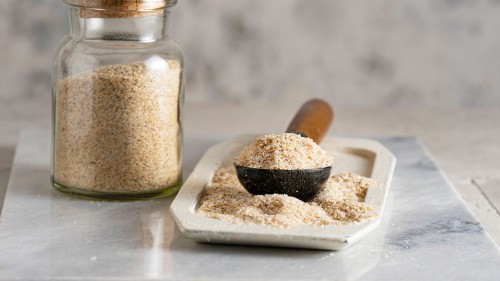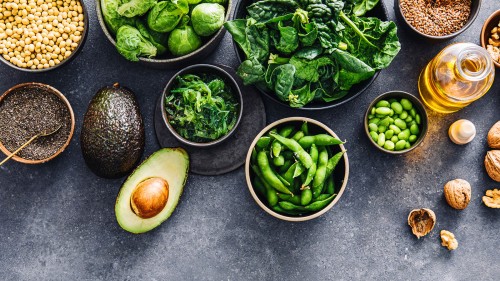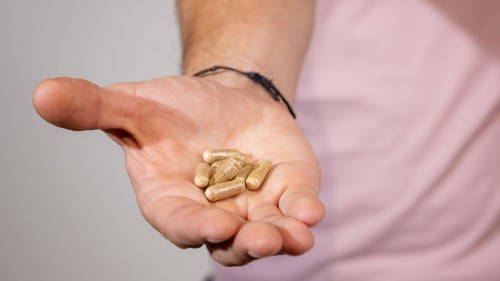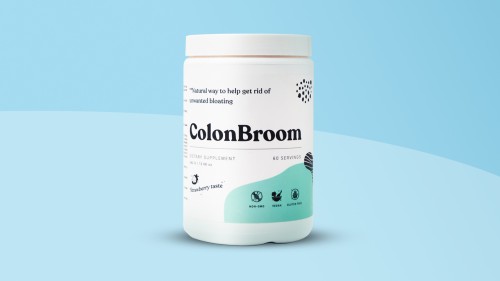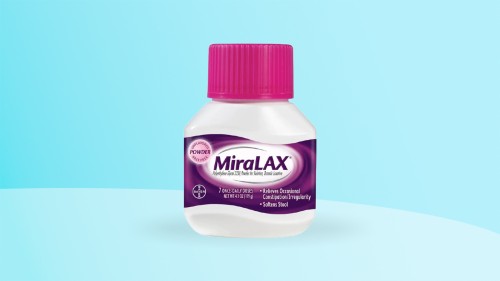WellnessVerge is reader-supported. We may earn a commission when you make a purchase through the links on this page. Learn more about our process here.
Metamucil Fiber Review: A Helpful Supplement for Your Digestion
Last Updated on December 8, 2022
Medically Reviewed by Yasmine S. Ali, MD, MSCI
Metamucil is a commonly used fiber supplement that contains an evidence-based ingredient, psyllium husk, which may be helpful for reaching daily fiber intake goals, which results in improved digestion and other health benefits.

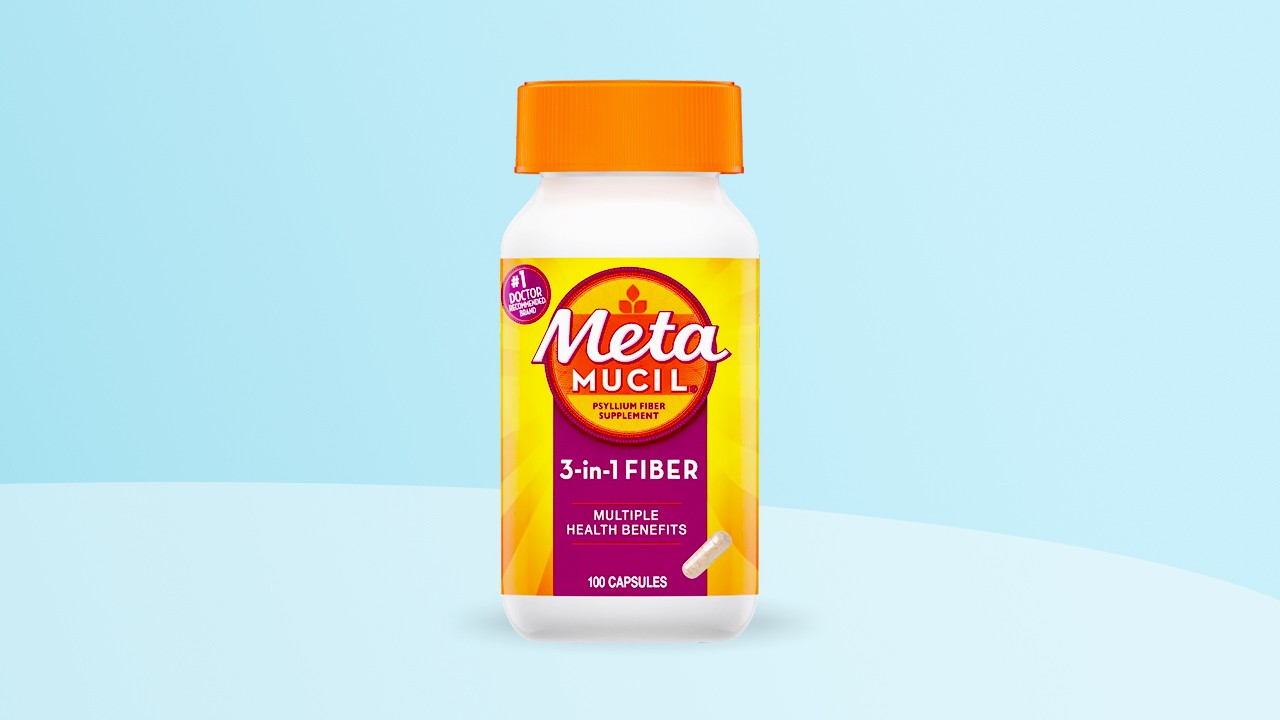
|
Pros
|
Cons
|
We have long known the importance of fiber for improving overall health and wellness.
Numerous studies point to the significance of a high-fiber diet in promoting positive short- and long-term health outcomes. (1)
Metamucil is a commonly-used fiber supplement that may be helpful for reaching daily fiber intake goals and improving important factors of health.
These include heart health, digestion, appetite, and blood sugar.
This review article will discuss the potential benefits of Metamucil, its side effects, how it compares to other fiber supplements, and provide other considerations for increasing fiber in your diet with food and supplements.
What Is Metamucil and How Does It Work?
Metamucil is a fiber supplement that contains a viscous fiber called psyllium husk intended to help with your digestive health. Psyllium husk comes from the Plantago ovata plant.
There are two types of dietary fiber, soluble and insoluble.
Psyllium husk used in Metamucil is primarily a soluble fiber. This type of fiber dissolves in water and other body fluids to form a gel-like substance.
It helps increase good bacteria in the colon and aids in the elimination of harmful substances like bad bacteria, toxins, and bad cholesterol, called LDL. (2)
Metamucil Product Varieties and Cost
Metamucil is available in a variety of forms and the cost will vary depending on where you purchase the product.
The Metamucil website provides buying options from various stores. The prices listed are the lowest ones found on their website, with Walmart and CVS pricing typically being the cheapest:
|
Form |
Serving Size |
Fiber amount |
Cost |
|---|---|---|---|
|
Powder |
2 rounded Tsp |
5 grams |
$19.49 per 72 teaspoons |
|
Capsule |
5 capsules |
2 grams |
$18.48 per 100 capsules |
|
Fiber Thins |
2 fiber thins |
5 grams |
$8.48 for 12 count |
|
Gummies |
3 gummies |
5 grams |
$15.48 for 72 count |
According to the many customer reviews, the powder mixes very well with water, and the reported taste of the gummies, powders, and fiber thins are mostly positive.
The gummies and powder come in an orange flavor, and the fiber thins have three flavors to choose from, which include apple crisp, cinnamon spice, or chocolate.
The makers of Metamucil also provide different sweetener options including:
- Sugar-Free: Contains 0 grams of added sugar due to the use of artificial sweeteners such as aspartame and acesulfame potassium.
- Stevia: Contains 0 grams of added sugar due to being sweetened with stevia.
- Real Sugar: Sweetened with 4–8 grams of sucrose or table sugar per tablespoon or packet (varies based on the product).
- Unsweetened: Contains no artificial, natural, or added sweeteners and is unflavored.
Does It Work? Potential Benefits of Metamucil
The makers of Metamucil claim it can help with:
- Digestive Health
- Heart Health
- Blood Sugar Levels
- Appetite Control
Let’s look at how the main ingredient in Metamucil, psyllium husk, affects each of these areas.
Digestive Health
Psyllium husk has been a widely used treatment for constipation.
One study showed supplementing psyllium for four weeks can significantly improve constipation. This is due to improving water retention and movement in the gut, both of which relieve symptoms of constipation. (3)
In addition, two different clinical trials showed psyllium in Metamucil significantly increased good bacteria in constipated patients, improving overall gut health. (4)
Many studies have shown psyllium can improve constipation, diarrhea, or a mix of both in those with irritable bowel syndrome (IBS). (5)
Summary
Metamucil may improve overall gut health and digestive issues, including constipation and diarrhea.
Heart Health
Psyllium fiber in Metamucil can effectively reduce cardiovascular risk and improve heart health by lowering bad cholesterol, called LDL. (6)
Although your body needs a minimum amount of cholesterol to build healthy cells, high levels of LDL are linked to an increased risk of heart disease. (7)
An analysis of 28 studies involving over 1900 people showed supplementing around 10 grams of psyllium significantly reduced LDL cholesterol. (6)
However, to get the researched amount of psyllium husk from Metamucil for lowering LDL cholesterol, you would have to take either 25 capsules or 4 teaspoons of powder per day.
Psyllium can also enhance the effect of cholesterol-lowering medications, like a statin. In those already taking statins, adding psyllium before meals can lower LDL cholesterol more effectively than taking a statin by itself.
Therefore, Metamucil may be a helpful addition for those who cannot tolerate higher-dose statins. (8)
Metabolic syndrome is a combination of factors, including high blood pressure, obesity, high cholesterol, and high blood sugar, that increase heart disease risk.
Psyllium supplementation improves these factors, leading to less risk. (9, 10)
Summary
Psyllium from Metamucil may help lower bad cholesterol and improve factors related to metabolic syndrome such as like obesity and blood pressure. However, a large dose of the supplement may need to be taken to see researched benefits.
Blood Sugar Levels
Fiber has long been studied for its role in promoting healthy blood sugar levels.
It decreases overeating by improving feelings of fullness, decreases the spike in blood sugar, and improves gut health which directly impacts blood sugar. (11)
In people with type 2 diabetes or prediabetes, taking a psyllium supplement like Metamucil before meals significantly improved fasting blood sugar and glycated hemoglobin (HbA1c) levels, which is a 3-month average of blood sugar levels. (12)
A median dose of around 13 grams of soluble fiber per day can significantly reduce fasting blood glucose, the 3-month average of blood sugar, and decrease insulin resistance. (13)
Because of this, The American Diabetes Association has confirmed that viscous fiber supplements (such as Metamucil) improve blood sugar control and should be considered in the management of type 2 diabetes. (13)
However, to reach 13 grams of soluble fiber from Metamucil, you would have to take over 30 capsules or 5 teaspoons of powder.
Summary
Metamucil can help manage blood sugar, but high doses would be needed to reach researched amounts from a supplement.
Appetite Control
Although no significant effect on weight loss has been shown with Metamucil, psyllium husk has been shown to improve feelings of fullness. (14)
One study showed that psyllium husk doses of 3.4 grams, 6.4 grams, and 10.2 grams significantly reduce hunger and desire to eat while improving feelings of fullness between meals. (15)
The best effects were seen in doses at 6.2 or 10.2 grams. (15)
You would have to consume about 15–25 capsules or about 2–4 teaspoons of powder to reach this amount for appetite control. It might feel more doable to consume powder in this case.
Summary
Metamucil may help with appetite control, although it does not have a significant effect on weight loss. It may be easier to consume powder instead of pills to get the researched dose that shows benefits.
The Evidence Score
Here is our score, based on scientific evidence, of how likely Metamucil will be effective for its claimed benefits:
| Digestive health | 4.5/5 |
| Heart health | 4.5/5 |
| Blood sugar levels | 4.5/5 |
| Appetite control | 4.5/5 |
Other Ingredients Included in Metamucil
Not all fiber supplements are created equal. When choosing fiber supplements, it is important to note the other ingredients they may contain.
Metamucil contains the following other ingredients in some of their products that have been linked to health issues:
- Maltodextrin: An additive used as a thickener, linked to disrupted gut bacteria. (16)
- Artificial Sweeteners Aspartame and Sucralose: Linked to disrupted gut bacteria, insulin resistance, and cravings. (17)
- Food Dyes (like yellow 6): Linked to increased inflammation and are potentially cancer-causing.
Although these ingredients are FDA-approved, if you are sensitive to any of them, or are wanting a cleaner fiber supplement, it is best to opt for one that contains only psyllium and no extra ingredients.
There are no Metamucil products that only contain psyllium husk.
They offer one fully unflavored Metamucil product with no added sweeteners, called Metamucil Sugar-Free Unflavored Smooth Powder. But this still contains maltodextrin and citric acid.
Metamucil Side Effects and Safety
Metamucil is generally safe to take. The most common potential side effects are digestive issues such as gas, bloating, and stomach pain, especially when you first start taking the supplement.
You should not take this product if you have difficulty swallowing or have bowel obstructions or spasms.
Due to the blood sugar-reducing effects of fiber, use caution with fiber supplements if you are on medications for diabetes to avoid hypoglycemia, or low blood sugar. (18)
Metamucil contains maltodextrin, which is often derived from cornstarch. You should avoid this product if you have a corn allergy.
In addition, the Metamucil thins are not gluten-free and should be avoided if you have a gluten allergy or intolerance.
Psyllium may reduce the absorption of certain medications and therefore should be taken 1 hour before or 2–4 hours after a medication. (18)
Dosage and How to Take
Metamucil Dosages will vary based on health goals. The brand’s website recommends the following doses:
- For Digestive Health: 2–5 capsules up to 4 times daily (8–20 capsules), or 1 rounded teaspoon of powder mixed with 8 oz water up to 3 times daily.
- For Heart Health by Lowering Cholesterol: 5 capsules up to 4 times daily (up to 20 capsules), or 1 rounded teaspoon of powder mixed with 8 oz water up to 3 times daily.
- For Healthy Blood Sugar Levels Support: 5 capsules, 4 times daily (20 capsules), or 1 rounded teaspoon of powder mixed with 8 oz water up to 3 times daily.
- For Appetite Control: No recommendation for capsules, and 2 rounded teaspoons of powder mixed with 8 oz water up to 3 times daily.
How Metamucil Compares to Alternatives
There are many fiber supplements on the market and alternatives to Metamucil.
Some of the alternative popular fiber supplements on the market include Benefiber and Citrucel. Although they claim similar benefits, they contain different fiber types than Metamucil.
Benefiber is a brand that contains various forms of fiber, including wheat dextrin, partially hydrolyzed guar gum, or inulin, depending on which product you choose.
Citrucel uses methylcellulose, which is a non-allergenic fiber.
These two products focus on constipation relief.
If looking for a comparable product to Metamucil, you can find many products that contain psyllium husk.
One example is NOW Whole Psyllium Husks. Unlike Metamucil, this brand contains no other ingredients or sweeteners.
Quick Comparison Table
|
Metamucil |
Benefiber |
Citrucel |
NOW Whole Psyllium Husks |
|
|---|---|---|---|---|
|
Type of Fiber Used |
Psyllium husk |
Wheat dextrin, inulin, or partially hydrolyzed guar gum |
Methylcellulose (a non-allergenic fiber) |
Psyllium husk |
|
Key Claimed Benefits |
Improved digestion, appetite control, heart health, blood sugar levels |
Relieves constipation |
Bulk-forming fiber laxative |
Reduced risk of heart disease, digestive |
|
Other Ingredients |
Varies based on product: Maltodextrin, artificial sweeteners, stevia, food dyes |
Chewables contain: Food dyes, artificial sweeteners, sorbitol, other additives |
Food dyes, sucrose, aspartame, additives |
None |
|
Regular Price (based on cheapest option) |
Powder: $19.49 per 72 teaspoons (14 oz), Capsule: $18.48 per 100 capsules, Fiber Thin: $8.48 for 12 count, Gummies: $15.48 for 72 count |
Powder: $12.69 for 8.7 oz, Chewables: $12.44 per 100 count |
Caplets: $21.89 for 180 caps, Sugar-Free Powder: $19.98 per 2 lbs |
Powder: $10.99 for 12 oz, Capsules: $17.99 per 180 count |
|
Shipping |
Free shipping is available but varies based on retailer |
Free shipping is available but varies based on retailer |
Free shipping is available but varies based on retailer |
Free shipping over $50 from NOW website |
|
Clinical Studies on Full Product |
Yes |
No |
No |
No |
|
Third-Party Tested |
No |
No |
Yes |
No |
|
Purchase |
Shop on Amazon | Shop on Amazon | Shop on Amazon | Shop on Amazon |
The Bottom Line
Metamucil contains the well-researched soluble fiber psyllium husk, which plays a role in improving digestion, heart health, blood sugar, and appetite control.
This supplement may be a helpful addition to a balanced diet that also includes enough fiber.
However, some of the products in the Metamucil line contain other ingredients, including artificial sweeteners, additives like maltodextrin, and food dyes like yellow 6.
Metamucil is not the best choice if you have sensitivities to any of these added ingredients or want a cleaner product. You may consider the NOW brand, which doesn't contain other ingredients besides psyllium husk.
Overall, it is my recommendation as a dietitian to aim for a fiber supplement that does not include sweeteners, food dyes, and additives.
Additional Things to Consider Regarding Your Fiber Intake
It’s important to note that adding Metamucil should not be in place of a well-balanced, high-fiber diet. As a dietitian, I always encourage food over supplements.
The daily recommended amount of fiber is:
|
Under 50 years old |
Over 50 years old |
|
|---|---|---|
|
Women |
25 grams |
21 grams |
|
Men |
38 grams |
30 grams |
Surveys show that 95% of Americans are getting less than half of the suggested amount of dietary fiber on a typical day, or only about 12–15 grams. (19, 20)
Including high-fiber foods is more cost-effective and can be more beneficial than adding a supplement.
Consider that a 3/4 cup (175 mL) serving of cooked black beans contains 5.4 grams of soluble fiber and can cost as little as 11 cents per serving. That works out to about $3.30 for a 30-day supply. (21)
In addition, prunes may be more effective than psyllium in fighting constipation. (22)
Also, oatmeal has similar results in fighting cholesterol. (23)
Although fiber supplements can be a great addition to a well-balanced diet, it is best to ensure you are getting fiber in the diet.
At WellnessVerge, we only use reputable sources, including peer-reviewed medical journals and well-respected academic institutions.
- The Health Benefits of Dietary Fibre - PubMed:
https://pubmed.ncbi.nlm.nih.gov/33096647/ - Dietary fiber: Essential for a healthy diet - Mayo Clinic:
https://www.mayoclinic.org/healthy-lifestyle/nutrition-and-healthy-eating/in-depth/fiber/art-20043983 - The effects of psyllium husk on gut microbiota composition and function in chronically constipated women of reproductive age using 16S rRNA gene sequencing analysis - PMC:
https://www.ncbi.nlm.nih.gov/pmc/articles/PMC8221300/ - The Effect of Psyllium Husk on Intestinal Microbiota in Constipated Patients and Healthy Controls - PMC:
https://www.ncbi.nlm.nih.gov/pmc/articles/PMC6358997/ - Dietary fiber in irritable bowel syndrome (Review) - PMC:
https://www.ncbi.nlm.nih.gov/pmc/articles/PMC5548066/#b46-ijmm-40-03-0607 - Effect of psyllium (Plantago ovata) fiber on LDL cholesterol and alternative lipid targets, non-HDL cholesterol and apolipoprotein B: a systematic review and meta-analysis of randomized controlled trials - PubMed:
https://pubmed.ncbi.nlm.nih.gov/30239559/ - High cholesterol - Symptoms and causes - Mayo Clinic:
https://www.mayoclinic.org/diseases-conditions/high-blood-cholesterol/symptoms-causes/syc-20350800#:~:text=Your%20body%20needs%20cholesterol%20to,to%20flow%20through%20your%20arteries. - Meta-Analysis of Usefulness of Psyllium Fiber as Adjuvant Antilipid Therapy to Enhance Cholesterol Lowering Efficacy of Statins - PubMed:
https://pubmed.ncbi.nlm.nih.gov/30078477/ - A new look at dietary fibers in metabolic syndrome - PubMed:
https://pubmed.ncbi.nlm.nih.gov/30701880/ - Metabolic syndrome - Symptoms and causes - Mayo Clinic:
https://www.mayoclinic.org/diseases-conditions/metabolic-syndrome/symptoms-causes/syc-20351916#:~:text=Metabolic%20syndrome%20is%20a%20cluster,abnormal%20cholesterol%20or%20triglyceride%20levels. - Fiber: The Carb That Helps You Manage Diabetes | Diabetes | CDC:
https://www.cdc.gov/diabetes/library/features/role-of-fiber.html#:~:text=Health%20Benefits%20of%20Fiber&text=Specifically%2C%20fiber%20can%20help%3A,sugar%20in%20your%20target%20range. - Psyllium fiber improves glycemic control proportional to loss of glycemic control: a meta-analysis of data in euglycemic subjects, patients at risk of type 2 diabetes mellitus, and patients being treated for type 2 diabetes mellitus - PubMed:
https://pubmed.ncbi.nlm.nih.gov/26561625/ - Should Viscous Fiber Supplements Be Considered in Diabetes Control? Results From a Systematic Review and Meta-analysis of Randomized Controlled Trials | Diabetes Care | American Diabetes Association:
https://diabetesjournals.org/care/article/42/5/755/40520/Should-Viscous-Fiber-Supplements-Be-Considered-in - The effects of psyllium supplementation on body weight, body mass index and waist circumference in adults: A systematic review and dose-response meta-analysis of randomized controlled trials - PubMed:
https://pubmed.ncbi.nlm.nih.gov/30880409/ - Satiety effects of psyllium in healthy volunteers – ScienceDirect:
https://www.sciencedirect.com/science/article/pii/S0195666316301738 - Crohn's Disease-Associated Adherent-Invasive Escherichia coli Adhesion Is Enhanced by Exposure to the Ubiquitous Dietary Polysaccharide Maltodextrin | PLOS ONE:
https://journals.plos.org/plosone/article?id=10.1371/journal.pone.0052132 - Artificial sweeteners, real risks - PMC:
https://www.ncbi.nlm.nih.gov/pmc/articles/PMC6389377/ - Psyllium Information | Mount Sinai - New York:
https://www.mountsinai.org/health-library/supplement/psyllium#:~:text=Psyllium%20is%20a%20soluble%20fiber,which%20psyllium%20husk%20is%20derived. - Should I be eating more fiber? - Harvard Health:
https://www.health.harvard.edu/blog/should-i-be-eating-more-fiber-2019022115927 - Perspective: Closing the Dietary Fiber Gap: An Ancient Solution for a 21st Century Problem - PubMed:
https://pubmed.ncbi.nlm.nih.gov/27422499/ - Food Sources of Soluble Fibre – Dietitians of Canada:
https://carleton.ca/healthy-workplace/wp-content/uploads/soluble-fibre.pdf - Fiber supplements and clinically proven health benefits: How to recognize and recommend an effective fiber therapy:
https://onlinelibrary.wiley.com/doi/full/10.1111/apt.12913 - Fiber supplements and clinically proven health benefits: How to recognize and recommend an effective fiber therapy:
https://www.ncbi.nlm.nih.gov/pmc/articles/PMC5413815/



